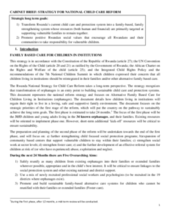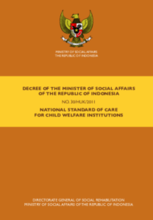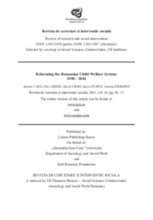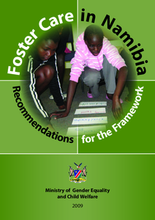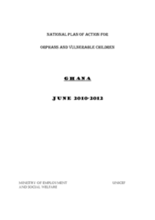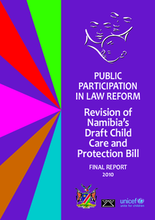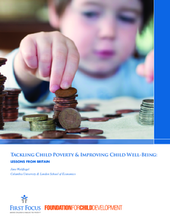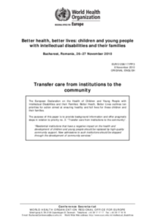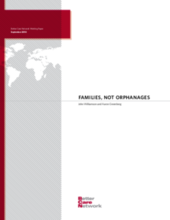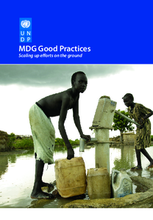Displaying 831 - 840 of 1028
This brief was prepared by the Rwandan Ministry of Gender and Family Promotion (MIGEPROF), requesting the Cabinet to approve the proposed child care reform strategy and to support its implementation.
Indonesia’s National Standards of Care for Child Welfare Institutions is a crucial policy instrument, drafted in response to the recommendations of the United Nations Committee on the Rights of the Child, regulating the provision of alternative care for children.
This article reviews the series of major changes undergone by the Romanian child welfare system from 1990 to 2010, including the laws and governmental reform measures enacted, the shift in child population among various Romanian institutions and foster care homes, types of institutions available to children, level of care, shift in reasons for child abandonment, changes in ways children are routed through the system, and how these changes have effect children’s development, health, and psychological well-being.
Report assessing the existing framework for foster care in light of the realities of Namibian foster care in practice. Based on information about foster care frameworks and guardianship legislation in other countries, recommendations are provided for new approaches to foster care and foster care grants which could be incorporated into Namibia’s forthcoming Child Care and Protection Act (CCPA).
The development of Ghana’s three year National Plan of Action for Orphans and Vulnerable Children (OVC) is to complement and reinforce existing legislature and other social policies for vulnerable groups. The OVC NPA framework sets out time bound goals and objectives and serves as a framework for providing care and support to vulnerable children in care institutions.
This document provides a summary of the various forms of consultation undertaken during the revision of the Child Care and Protection Bill. It provides a basis for future law reform processes and presents an excellent example of how to include children and the public in the law-making process.
This paper, written for a US audience, describes recent efforts to reduce child poverty by a peer country, Britain. Drawing on research carried out over the past decade, this paper summarizes what we know about Britain’s war on poverty, their likely next steps, and implications and lessons for the US.
The purpose of this paper is to provide background information and offer pragmatic steps in relation to priority no. 3 of the European Declaration on the Health of Children and Young People with Intellectual Disabilities and their Families: “To transfer care from institutions to the community”. The paper was produced in preparation for the conference in Bucharest, Romania 26-27 November, 2010.
With particular attention to lower income countries, this paper examines the mismatch between children’s needs and the realities and long-term effects of residential institutions. The paper examines available evidence on the typical reasons why children end up in institutions, and the consequences and costs of providing this type of care compared to other options. The paper concludes with a description of better, family-based care alternatives and recommendations for policy-makers.
Good practices covered in this publication have sought to address specific constraints and challenges in achieving the Goals, in each country’s context, with specific examples related to care and protection for vulnerable children.

